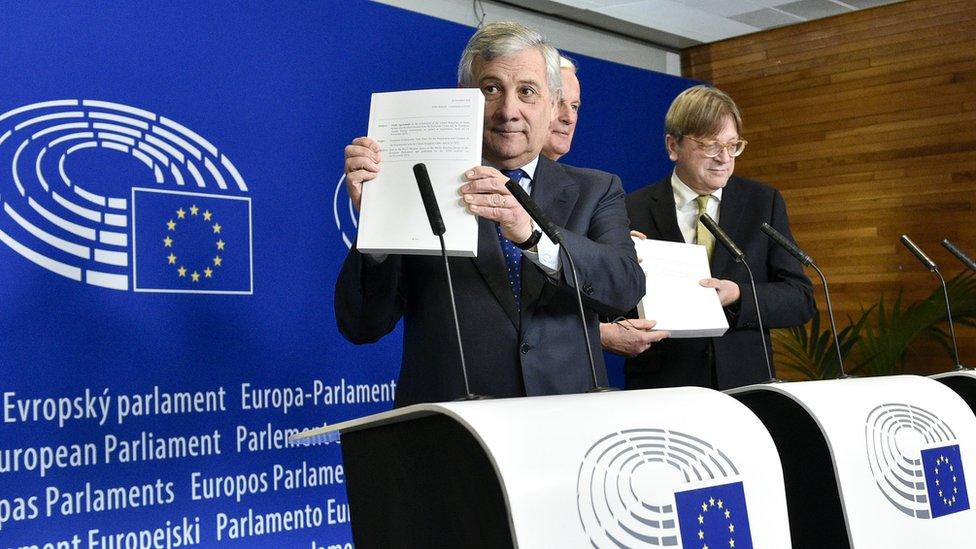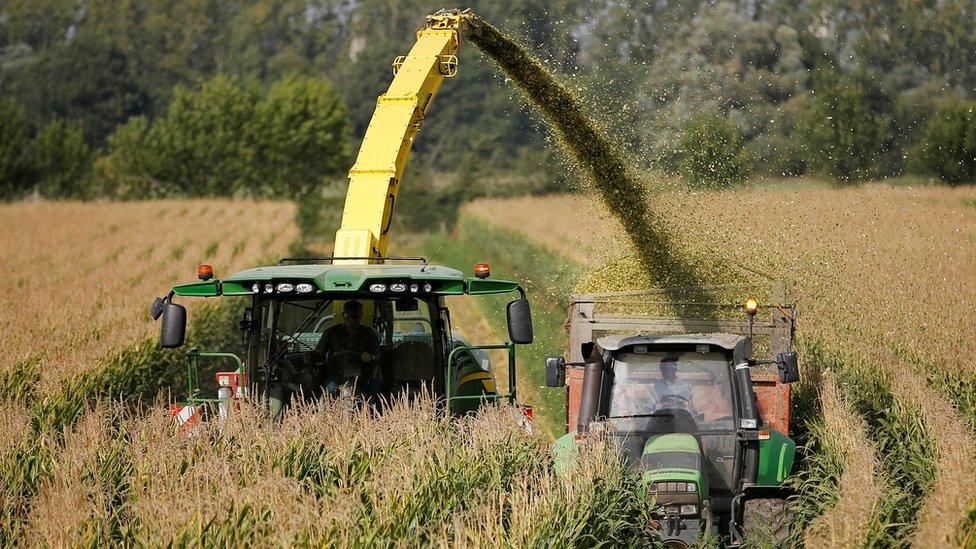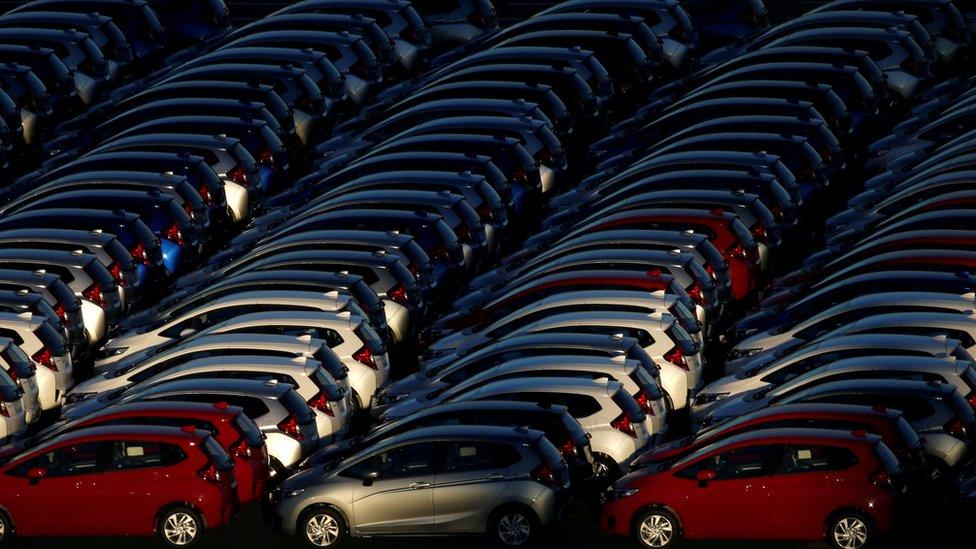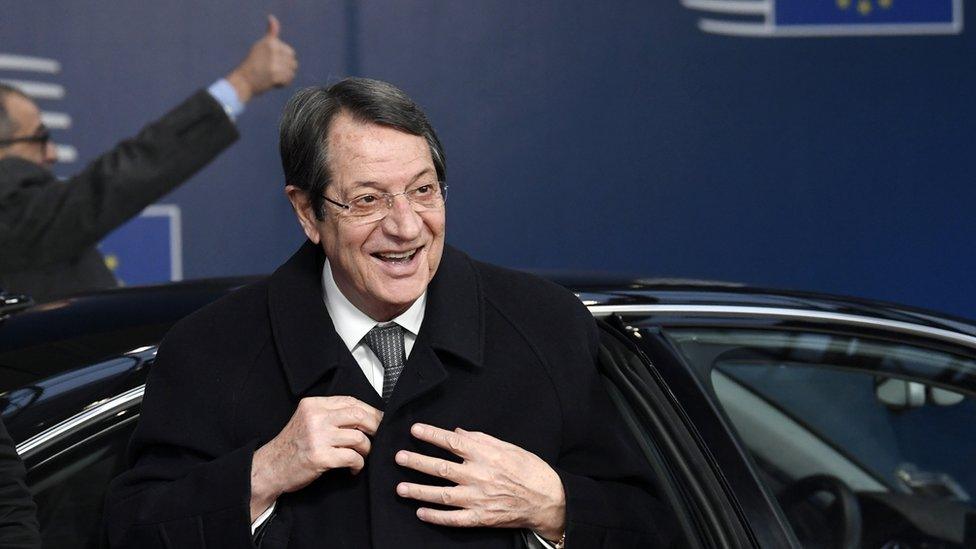Week ahead in the European Parliament
- Published

This week's plenary sitting of the European Parliament in Strasbourg could well be overshadowed by events in Westminster.
For the moment at least, a short debating slot on Brexit remains on the agenda for Wednesday morning.
It will give a chance for MEPs and the European Commission to the latest developments over in London.
So far leading MEPs have echoed the current EU position that Theresa May's deal will not be renegotiated and is the only game in town.
But will this position hold at this week's EU leaders' summit, due to begin on Thursday?
Aside from Brexit, it's a very busy session, with a number of end-of-year debates and big votes planned.
Top of the list is a vote on next year's EU budget, and on ratifying the bloc's agreed trade deal with Japan.
Here's a rundown of the main events this week...
Monday
The sitting begins with a debate on funding for the EU's LIFE programme, external, which funds conservation and green innovation projects.
MEPs are calling for the scheme's budget to be doubled ahead of negotiations for the 2021-2027 funding period.
After this they will discuss new EU-wide limits on the extent to which people can be exposed to various chemicals at work.
The update to health and safety legislation covers eight chemicals which carry a risk of causing cancer through over-exposure.
Following pressure from MEPs, the revision will also create new exposure limits for diesel engine exhaust fumes.
They have agreed a revision to the legislation with national ministers, which faces a final vote on Tuesday.

France plans to ban the use of glyphosate within three years
After this they will discuss new transparency measures for the EU's authorisation process for food products and chemicals used in farming.
The European Commission proposed the changes following the controversy surrounding the licence renewal of glyphosate, a widely used weedkiller.
The new system aims to promote greater and earlier publication of scientific studies used by the European Food Safety Authority (EFSA) in its risk assessments.
Tuesday
The day begins with a debate on this week's big EU leaders' summit in Brussels.
Leaders are currently due to discuss the EU's next long-term budget from 2021, migration policy and tackling 'fake news'.
However, will this be another summit that ends up being dominated by Brexit?
Also in the morning, they will discuss the fallout from last week's meeting of eurozone finance ministers.
Eurozone countries agreed that the eurozone's bailout fund should become the financial backstop to the EU's scheme for managing bank failure.
But they failed to reach agreement on plans for a eurozone budget, and a common insurance scheme for protecting bank deposits.
After the voting session they will discuss the final report from the assembly's inquiry committee on terrorism set up in July last year.
Their massive report, which faces a vote on Wednesday, contains a glut of policy recommendations for the European Commission and EU states.
Chief among them: setting up a new EU body for preventing 'radicalisation', and more information on terror suspects uploaded to EU databases.
The report also backs Jean-Claude Juncker's push for EU legislation to force internet firms to remove terrorist content within an hour of it being uploaded.
After this they will debate the EU's new trade deal with Japan, ahead of their vote the next day to ratify it.

The agreement - the biggest the bloc has struck by economic value - was announced last December after more than four years of formal negotiations.
Japan has agreed to lower its tariffs on European food products, whilst the EU has agreed to phase out its tariffs on imported Japanese cars.
In the afternoon there will be traditional end-of-year debates on reports relating to the EU's external affairs and defence policies.
The main debate in the evening will be on the deal MEPs reached last week with national ministers on the EU's budget for next year.
Weeks of negotiations came to an end last week when a deal was finally struck over funding for the EU's science and research budgets.
The area had been a big sticking point in the talks - the final vote to ratify the spending deal for 2019 will now go ahead on Wednesday.
Wednesday
The debate on Brexit is scheduled to start at 08.00 GMT and last around an hour - meaning relatively few MEPs will get the chance to speak.
As well as MEPs, could there be reaction to the result via speeches from Michel Barnier or Jean-Claude Juncker?
For the moment, Cypriot President Nicos Anastasiades has kept his slot at 09.00 GMT to deliver a speech on the future of the EU.

Nicos Anastasiades has been president of Cyprus since 2013
Also on the agenda for the morning: a ceremony to award the 2019 Sakharov human rights prize to imprisoned Ukrainian film director Oleg Sentsov.
In his absence the award will be collected by his cousin and his lawyer.
Around lunchtime will come the first of two voting sessions for the day - an usual move, reflective of the many votes being held at the year-ending plenary.
The main debate in the afternoon will be on the European Commission's planned EU-wide tax on companies providing digital services.
The proposal has run into stern opposition from some EU countries - meaning the unanimous approval it needs currently looks unlikely.
France and Germany came forward last week with an alternative scheme for a narrower tax targeting digital advertising sales.
The European Parliament favours extending the scope of the original proposal, but it does not have the power in this area to amend the legislation.
After the second voting session, MEPs will discuss conflict of interest allegations against billionaire Czech Prime Minister Andrej Babis over his business dealings.
Reuters reported last week, external that an EU legal document said he has a conflict of interest due to links to agribusiness firms in receipt of European cash.
Mr Babis has denied a conflict of interest and said he has always acted legally.
The evening will see debates on annual reports from the European Parliament's petitions committee and the EU's administration watchdog.
There will also be a debate on a report from the legal affairs committee on speeding up the resolution of commercial disputes under EU law.
Thursday
The day opens with a debate on the hundreds of migrants who have recently gathered on Bosnia and Herzegovina's border with Croatia.
After this, there will be the usual debates on this month's motions on human rights cases worldwide.
This month's motions will focus on Iran, Egypt and Tanzania - they will all face a vote during the day's voting session from 11.00 GMT.
Please note: This agenda is subject to modification at the opening of the session on Monday afternoon.
A guide to the European Parliament's plenary sessions can be found here.